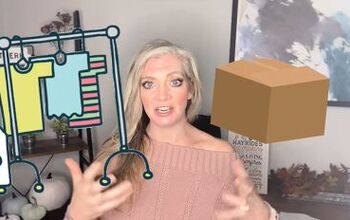A Beginner’s Guide to Money Management

There is no manual to becoming an adult. Because of this, many people do not know how to set up a budget or take proper care of their finances. Instead of relying on the experiences of past generations, they are left to their own devices, often struggling to get things right. As a result, newer generations are usually regarded as less financially savvy than their parents and grandparents.
Fortunately, it is never too late to get your finances under control. If you take some time to assess your financial situation, list all of your monthly expenses, and see where you can reduce your spending, you can turn things around. Once you take a good look at your income and determine how much you can spend on items from your list of expenses each month, you can start saving more money. Doing so can help you afford more non-essential expenses and address unexpected issues you encounter down the road.
Here are some tips on managing your finances to stay on top of your bills and not go into too much debt:
Start With a Plan
The first step is to develop a plan. You need to calculate your monthly income and regular expenses. Doing this will help you figure out how much money you can spend on things like nights out, new clothes, and other non-essential items.
Once you know your monthly income, list all of your regular expenses, including essentials like rent, utilities, groceries, phone bills, etc. Then, subtract this amount from your monthly income. The number you are left with is the amount of money you can spend on non-essentials or save each month.
If your goal is to save money, consider setting up a budget, but make sure that you are realistic about your spending. Do not try to cut back too much, as doing so can make it difficult to stick to your budget.
If you are well aware of the benefits of coupons and promo codes, make the most out of them — you can click here to get best deal and browse tons of other websites and mobile apps. But, most importantly, you should be on the lookout for new coupons for things you need instead of buying non-essentials simply because you’ve found a coupon.
By having a plan and sticking to it, you can take control of your finances and avoid going into debt.
Create a Savings Plan
Once you have a budget, you should also develop a savings plan. The best way is to set up a savings account and contribute to it each month. If you are able to save up enough money, you can use it to cover unexpected future expenses or pay off debt.
One way to make sure that you can contribute to your savings account regularly is to set up automatic transfers. This way, you do not have to think about transferring money into your savings account each month. Instead, the money will be transferred automatically from your checking account.
Pay Off Debt
If you are struggling with debt, it is essential to prioritize paying it off. The longer you wait, the more interest you will accrue, making it more challenging to pay off your debt in full.
Paying off credit card debt is often the best place to start. Lenders generally charge much higher interest rates on credit cards than on other loans, including home equity lines of credit or car loans. As such, paying off your credit card debt in full and not racking up more will allow you to save money in the long run and maintain financial health.
When creating a budget, make sure that you include all of your debts as well as your other expenses. Doing this will help ensure that you can make all of your payments on time and eventually pay off your debt in full.
Another way to pay off debt is to create a debt repayment plan. It is an agreement between you and your creditors where you vow to pay creditors a small amount each month. When creating a debt repayment plan, make sure that you include all of your debts as well as the interest rates associated with each debt.
As you can see, there are several steps to take to get your finances under control. If you have fallen behind on your bills and are having trouble paying them, it is time to take action. If you do not take care of your finances, you could end up in a lot of debt or make matters worse by extending the payment deadline.
The key to getting ahead financially is not making huge sacrifices or doing without the things you enjoy. It is all about spending less money than you make. While this may seem easy, it is often harder than it sounds.
You should never go into debt in order to buy something that will not be beneficial in the long run. This is why it is crucial to start saving as much money as possible while reducing your monthly expenses so that you can build up enough savings to pay for bigger purchases later on.
Wanting more information on money management? Sign up for my 20 Day Budget Bootcamp over here!























Comments
Join the conversation